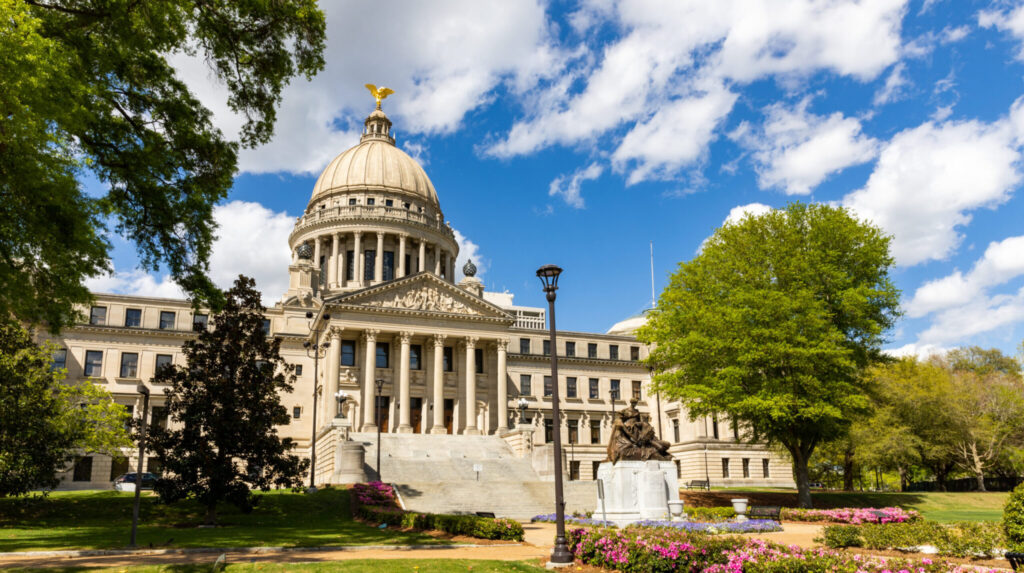

After six months of heated battles in the states to restore access to 340B drug discounts in the contract pharmacy setting, it’s a good time to reflect on providers’ progress and setbacks.
Twenty-five states, an unprecedented number, have introduced bills to require drug manufacturers to provide 340B discounts to covered entities that contract with chain, community or other types of pharmacies.
Despite the early successes of Arkansas and Louisiana, which enacted their own 340B contract pharmacy protection laws relatively easily in 2021 and 2023, the pharmaceutical industry has stepped up its game and been able to kill bills that easily passed both chambers of various states’ legislatures.
Caving to pressure from dark money groups that have tied the 340B program to immigration growth, some Republican lawmakers have backtracked on their support for bills they approved just weeks earlier; or not objected when their governor vetoed their own legislation. Nonetheless, six of the eight states to enact contract pharmacy laws—Arkansas, Louisiana, West Virginia, Mississippi, Kansas and Missouri—are red states.
In Congress, the 340B program has always enjoyed bipartisan support, although Democrats generally have been more supportive. Interestingly, the only two blue states to enact 340B contract pharmacy laws so far are Maryland and Minnesota.
As someone who has focused most of my attention over the past 30-plus years on federal legislation, I assumed (perhaps naively) that a bill which passes one legislative chamber 40-0 and passes the other by a vote of 92-5 would meet no resistance when it reaches the governor’s desk. But after an aggressive drug industry lobbying campaign (aided by a dark money group), Virginia Gov. Glenn Youngkin (R) turned his back on health centers in his state and vetoed a law that would have restored access to 340B discounts.
After the Republican-controlled Missouri legislature easily passed its contract pharmacy access bill in May, the state’s 340B providers had to work overtime to convince Gov. Mike Parson (R) to not veto the bill. Their efforts were successful, but it certainly was not a total victory. On July 11, the governor announced that he would neither sign nor veto the legislation. In his announcement, he described the 340B program in not exactly glowing terms.
“While I appreciate the General Assembly’s intent to improve patient access and affordability, [S.B.751] also ensures the expansion of a flawed federal program within the state of Missouri,” Parson wrote. “My concerns aside, my ultimate focus is on patient access and affordability.”
Recently, the same dark money group that I described earlier (which happens to be run by a Washington D.C. public relations firm), has tried to connect 340B to abortion subsidies. Despite the fact that many of the beneficiaries of the restoration of 340B discounts are faith-based institutions—and there is no connection between the 340B program and abortion funding—once respected lawmakers, like Missouri Secretary State Jay Ashcroft (R), have fallen for the trap.
The 340B provider community has offered different opinions on how to combat these misleading attacks. Some of have advocated for ignoring them since they are so preposterous. At first, I could understand this approach.
Are immigrants risking their lives to come the U.S. to access 340B drug pricing? Of course not. Does 340B subsidize abortions? Ridiculous. Nonetheless, the truth is that this cynical effort is having some impact, so trying to ignore the issue is simply not going to work. Even Republican vice presidential candidate JD Vance has signed on to a bill that would prevent non-citizens from accessing healthcare coverage and have the government report on noncitizens’ use of 340B discounts.
Now is the time to directly challenge these messages. First, doctors and other medical professionals still follow the Hippocratic Oath to help the ill. And federal law requires healthcare institutions, such as hospitals and health centers, to treat all patients regardless of insurance or immigration status. Would it make more sense to treat these patients at higher costs and then stick the taxpayer with the bill? I don’t think so.
The abortion connection is also a canard. 340B is not a government subsidy program: It requires drug manufacturers that want to sell their drug products to Medicare and Medicaid patients to provide a discount to healthcare providers serving high numbers of low-income and rural patients. Is the 340B program critically important to healthcare providers and the vulnerable patients they serve? Absolutely.
As Karen White, CEO of Missouri Highlands Health Center in Southeast Missouri, recently told a local news outlet, her state’s new 340B contract pharmacy protection law is critical for women’s healthcare, especially for those in rural parts of the state.
“Without the 340B program, access to crucial women’s health services not just in the seven counties we serve, but throughout underserved areas in the state could be severely compromised,” she said.
The time has come for the 340B provider community to no longer be pushed around and start to play hardball.


Ted Slafsky is the Publisher and CEO of 340B Report, the only news and intelligence service exclusively covering the 340B program. Slafsky, who has over 25 years of leadership experience with the 340B program, is also Founder and Principal of Wexford Solutions.
Ted can be reached at ted.slafsky@340Breport.com.
Disclaimer: The views and opinions expressed in this blog are those of the authors. They do not necessarily reflect the official policy or position of any other agency, organization, employer, or company.